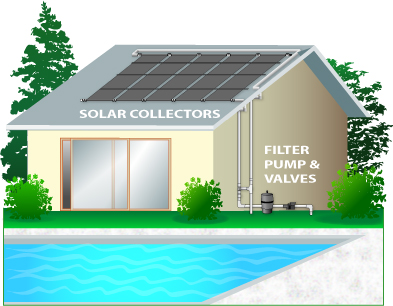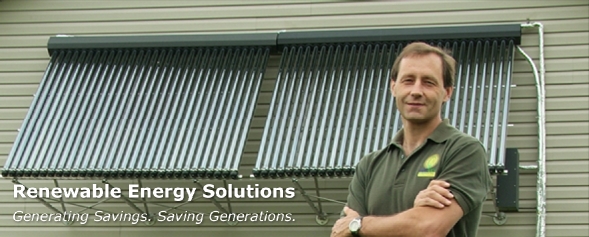
Solar Hot Water Heating
Solar hot water panels can be highly efficient, converting about 80% of the energy that hits them into heat. Even on a cloudy day, they will produce some hot water, especially when they are oriented as close as possible to the south to take maximum advantage of the sun’s rays.
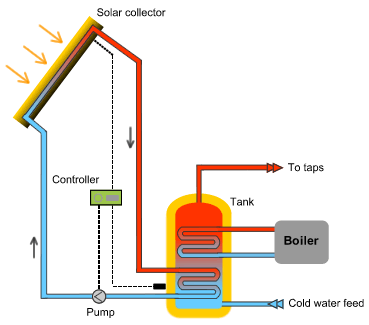
Solar Domestic Hot Water System
They can be used to provide at least a portion of the hot water you use for showers, dishwashers, clothes washers, farm operations and even in-floor heating. A typical system consists of:
- A solar collector that can be mounted on roofs, walls or the ground
- A heat exchanger that extracts the heat that has been gathered
- A pump
- A storage tank for the heated water
Freeze-protected solar water heaters will keep generating hot water even when the mercury dips well below zero.
Conversion of sunlight to heat is one of the most efficient, cost-effective and widely applicable means of generating renewable energy. There are many methods, technologies and brands form which to choose. However, in the Eastern Ontario climate, all systems that operate year-round must be freeze protected.
Leading types of solar water heating systems use:
- Flat Plate (or Glazed) collectors – flat panels with glass and a flat, black metal plate with circulating fluid to capture and transfer heat
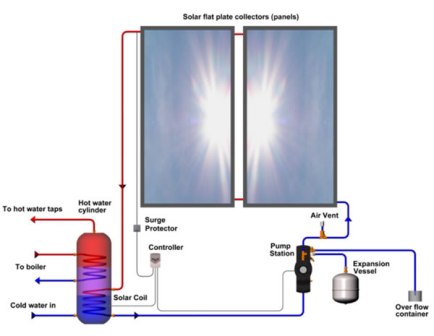
Solar Flat Plate Panel System
- Evacuated Tube collectors – large evacuated tubes, like Thermos bottles, with metal plates inside and a means to transfer captured heat. The vacuum acts as an insulator to prevent losses.
Solar Collector Parts
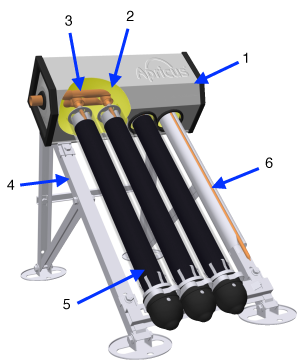
Solar Evacuated tubes from Apricus
- Collector manifold
- Glass wool insulation
- Copper header pipe (liquid flow)
- Stainless steel mounting frame
- Evacuated tube (solar absorber)
- Heat transfer fin and heat pipe
Collector Operation
Step 1: Sunlight is absorbed inside the evacuated tube causing it to heat up.
Step 2: The heat pipe inside the tube carries this thermal energy up to the manifold box.
Step 3: Fluid circulates from the storage tank up through to the header pipe and extracts the energy from the hot heat pipe tips.
Step 4: The newly heated fluid circulates back to the storage tank where it can be used and the cycle begins again.
- Unglazed collectors – large polymer panels typically used to heat pool water directly. These systems do not have freeze protection and must be drained seasonally.
